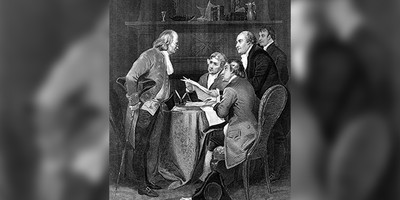Editor's note: this piece was coauthored by Kurt Altman.
Beth Richardson searched Columbia, South Carolina for the best school for her son. Jed, age 7, attended a Montessori school for kindergarten, but after weeks of research in preparation for first grade, Beth enrolled him at East Point Academy, a Chinese-immersion charter school.
“I visited every single school that was available to us in Columbia,” Beth said. “I spent a lot of time at the Chinese immersion school before we moved him.”
This year, the Richardson family was one of more than 2 million families across the country that chose charter schools, which are independent, tuition-free public schools. Charter schools pride themselves on unique mission statements and teaching styles. School leaders sign a contract, or charter, with a state agency or local school district, and the schools can choose to focus on math and science or, like East Point, teach classes in both Chinese and English.
What sets charter schools apart is their ability to choose their own textbooks and teaching strategies. The national Common Core standards that swept through the country in recent years threaten this key characteristic. These standards require all public school students—traditional and charter—to learn specific material in a predefined sequence. The standards have forced schools to revise their curriculum strategies and teaching methods.
Textbook companies are stamping “Aligned with the Common Core” on their book covers. Even supporters of the Common Core have admitted that the standards are more than just benchmarks and will change how teachers teach. Now, the Bill and Melinda Gates Foundation is funding a project that reviews curriculum to see how well it matches the standards.
By its nature, Common Core causes charters to become more like the traditional schools next door. As state lawmakers around the country grapple with Common Core’s effects, maintaining charters’ independence must be a part of these decisions.
Recommended
Some states, like Missouri and South Carolina, opted out of Common Core entirely and are rewriting state benchmarks. Other lawmakers have taken to the courts. Earlier this week, Louisiana Gov. Bobby Jindal chose to sue the federal government over Washington’s involvement in the national standards.
However lawsuits like Jindal’s are rare, so far. Courts have yet to rule on whether the federal government merely persuaded states to adopt the Common Core with the promise of Race to the Top grant money and waivers from the federal No Child Left Behind law or engaged in coercion. Regardless, Washington’s tactic of offering states more money during a financial downturn succeeded in changing state policies. The Common Core is exhibit A. So far, the tactic has avoided judicial scrutiny. That is about to change.
While the debate over Common Core’s value continues, policymakers should consider the promise charter schools and state agencies made in charters’ contracts for school autonomy. There is a range of tests based on national norms (scoring methodologies that allow for comparisons) that charters could use in place of tests aligned to the Common Core. These tests would help to allow charter schools to maintain their instructional strategies.
Charter schools and traditional schools should be held accountable for how well students are learning. By giving charters the freedom to choose their own test from a list of reliable replacements, the schools could continue to follow their mission statements and not be forced to change their teaching styles or replace textbooks.
Like it or not, schools operate in an age of high-stakes testing, where assessments determine a school’s ranking compared to other public schools and consequences like closure may follow poor results. As a result, the subject material that a test covers will determine much of what happens in a classroom. Lawmakers in states like South Carolina should make sure that whatever replaces Common Core is challenging for students and schools and still allows charter schools to remain independent.
Charter schools are offering alternatives, and with more than 1 million students on waiting lists across the country, these schools are in demand. Parents like Beth Richardson want high-quality options for their children. Charter schools should have the flexibility to provide these choices.

























Join the conversation as a VIP Member